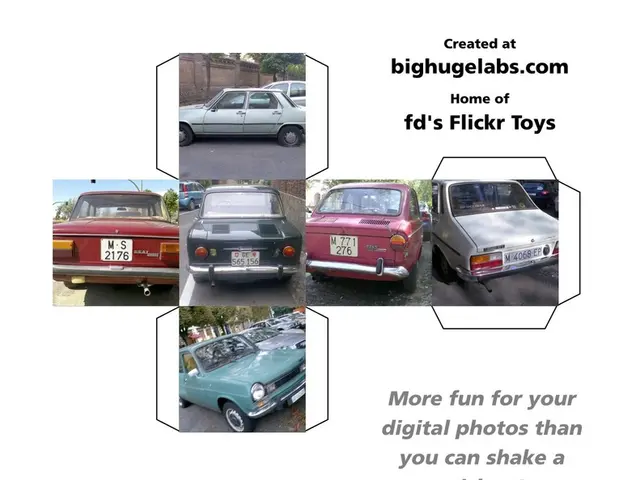BYD launches offensive against Apple's market dominance
BYD Takes a Leap into the Smart Vehicle Market with its Own Tablet
Chinese conglomerate BYD, known for its electric vehicles and battery production, is making waves in the tech world by venturing into the consumer electronics market. The company, through its subsidiary BYD Electronics, currently assembles about a third of all iPads and plays a significant role in iPhone production, supplying high-quality titanium frames for the Pro models.
This expansion into the automotive and mobile device market could serve as another wake-up call for competition from both the automotive industry and Silicon Valley. For companies like BYD, this opens up entirely new, recurring revenue streams from the automotive hardware and mobile devices market.
BYD's strategy with its self-developed tablet integrated into the new premium SUV, the Fang Cheng Bao Tai 7, is to enhance the vehicle's infotainment and connectivity. The tablet aims to offer multi-screen collaboration and seamless integration with the car's system, positioning BYD as a player in both the automotive and consumer electronics markets.
Unlike Tesla, whose CEO has expressed disinterest in making such devices, BYD leverages its background as a major contract manufacturer for brands like Huawei, Xiaomi, and Oppo, giving it expertise in electronics production and a potential edge in connected vehicle technology.
By developing its own tablet, BYD challenges Apple by offering a custom-built device optimized for in-car use, enhancing user interaction beyond what Apple currently provides in vehicles. The company targets the growing demand among Chinese consumers for sophisticated in-vehicle connectivity experiences and potentially creates an ecosystem around its Fang Cheng Bao sub-brand that integrates hardware and software, similar to Apple’s ecosystem strategy but focused on automotive applications.
The market for "smart vehicles" is predicted to generate annual revenue potential of $742 billion by 2030. BYD's move represents a strategic extension of its electric vehicle business and a challenge to established tech-automotive integrations by Apple and others. The Tai 7 will launch in Q4 2025, when more details about the tablet and its capabilities will likely emerge.
It's worth noting that BYD still holds 65% of the shares in the iPad assembly subsidiary, and over 100,000 employees and 10,000 engineers are dedicated solely to the "fruit business" (Apple's products). BYD has strengthened its position in Apple's supply chain by acquiring plants from US manufacturer Jabil Circuit, further solidifying its role as a heavyweight in contract electronics manufacturing.
With its strong foothold in the electric vehicle and battery market, BYD's foray into consumer electronics marks a significant step in its mission to offer a superior in-car digital experience, particularly targeting urban driving needs. The company's move underscores the growing convergence of the automotive and tech industries, as both compete to offer the most advanced and user-friendly connected vehicle experiences.
- The strategic extension of BYD's electric vehicle business is a challenge to established tech-automotive integrations, such as Apple's, as they also look to offer the most advanced and user-friendly connected vehicle experiences.
- The automotive and tech industries are seeing an increasing convergence, with companies like BYD leveraging their expertise in both the automotive and electronics markets to develop innovative technologies, such as the self-developed tablet for its premium SUV, the Fang Cheng Bao Tai 7.
- BYD's expansion into the consumer electronics market, and specifically its move to develop a tablet for in-car use, represents an opportunity for the company to tap into the substantial market for "smart vehicles," which is predicted to generate annual revenue potential of $742 billion by 2030.




